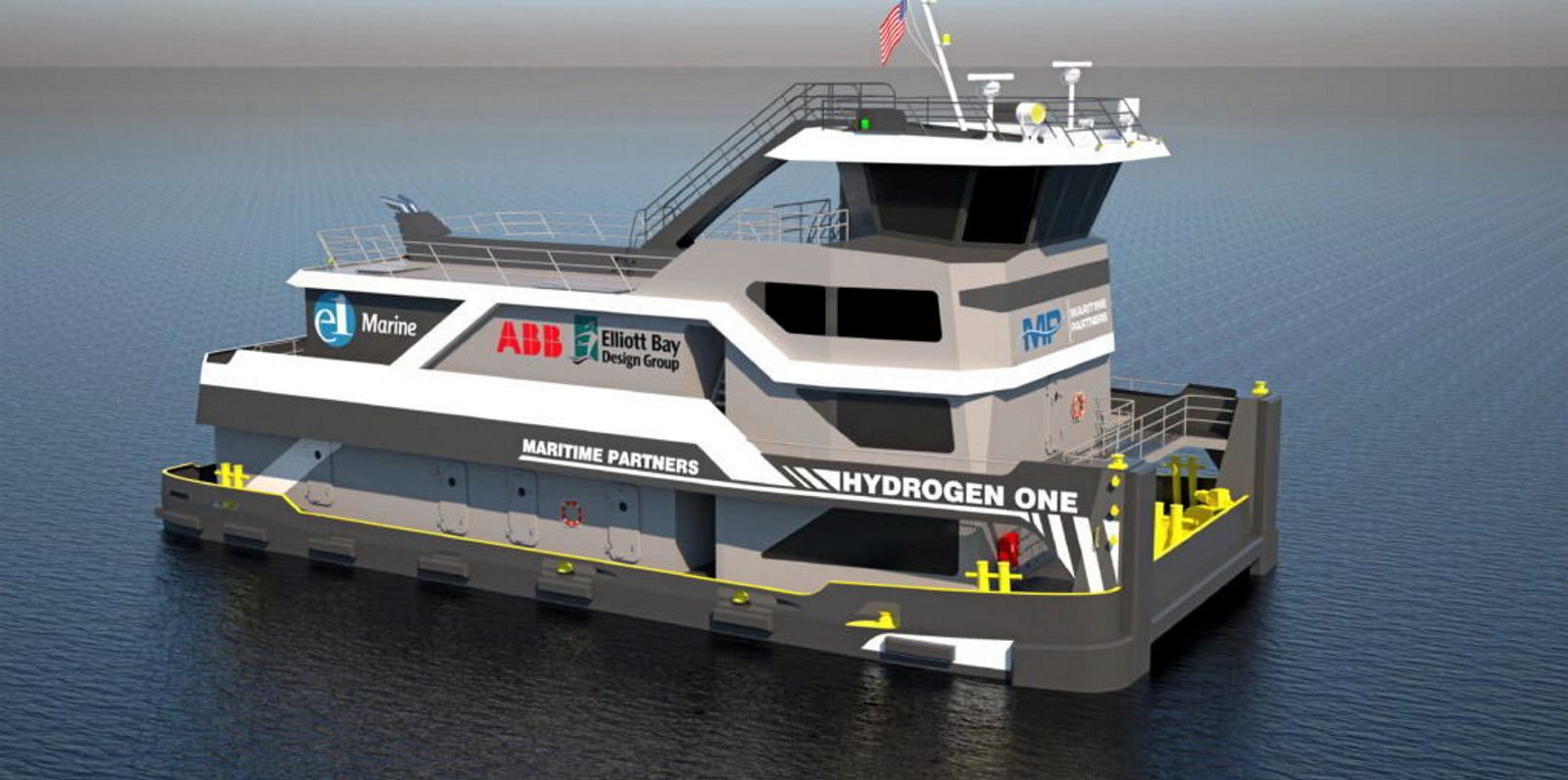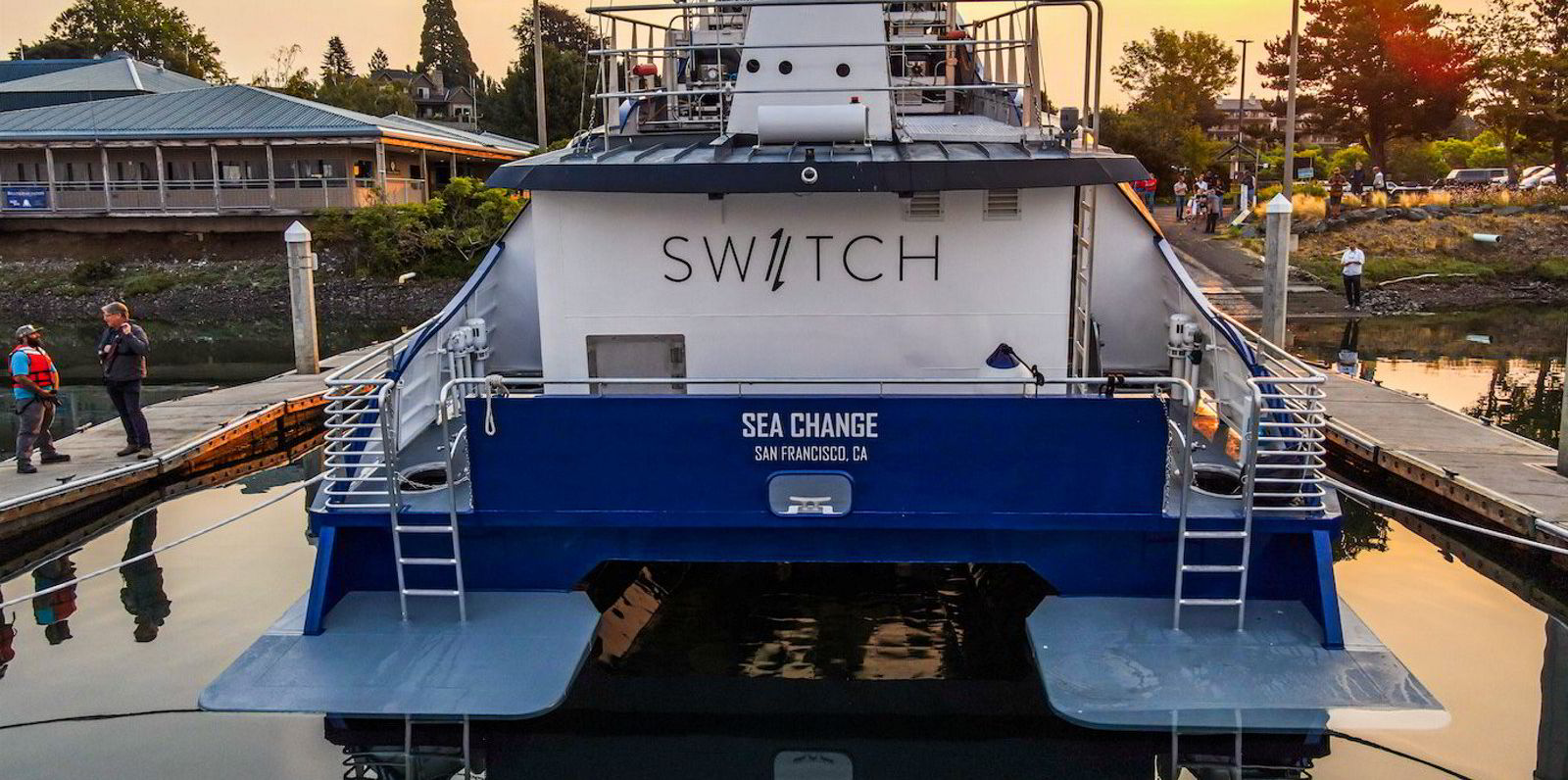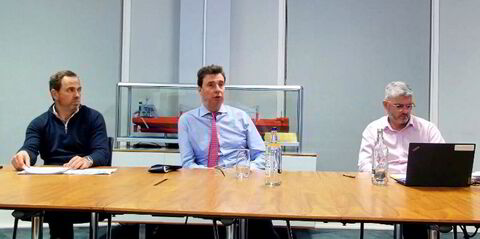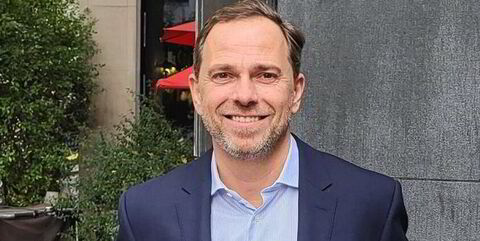Think of it as a "magic box" — that is how Maritime Partners president Austin Sperry refers to the unique technology that is planned for a tug newbuilding.
The kit is actually called a reformer — part of a hydrogen generator that will allow the vessel to be fuelled by methanol and water, but power its fuel cell with hydrogen.
The reformer technology is a product of e1 Marine, the fuel technology joint venture of Maritime Partners, New York-listed product tanker owner Ardmore Shipping and technology firm Element One, which each have a one-third stake.
And it is at the core of Maritime Partners' plans to build the first hydrogen-fuelled tug in the US.
Sperry told TradeWinds that the company turned to the methanol-to-hydrogen technology as a result of the logistical and technical challenges of using compressed hydrogen in tugs on the US inland waterway.
The reformer serves as the "missing link" between hydrogen and fuels that are within reach now.
"In the inland river system, we're already moving methanol on barges. Right now, methanol is widely available," he said.
The partners in e1 Marine also see the methanol-to-hydrogen technology as a solution for the challenge of decarbonising the broader towboat sector, where batteries only help on fixed routes and limited storage space on board makes cryogenic fuels a tough choice.
In addition to e1 Marine, naval architect Elliott Bay Design Group and technology firm ABB are contributing to the development of the Hydrogen One.
Maritime Partners is on the cusp of submitting a design basis letter to the US Coast Guard (USCG) to ensure it will meet regulatory requirements.
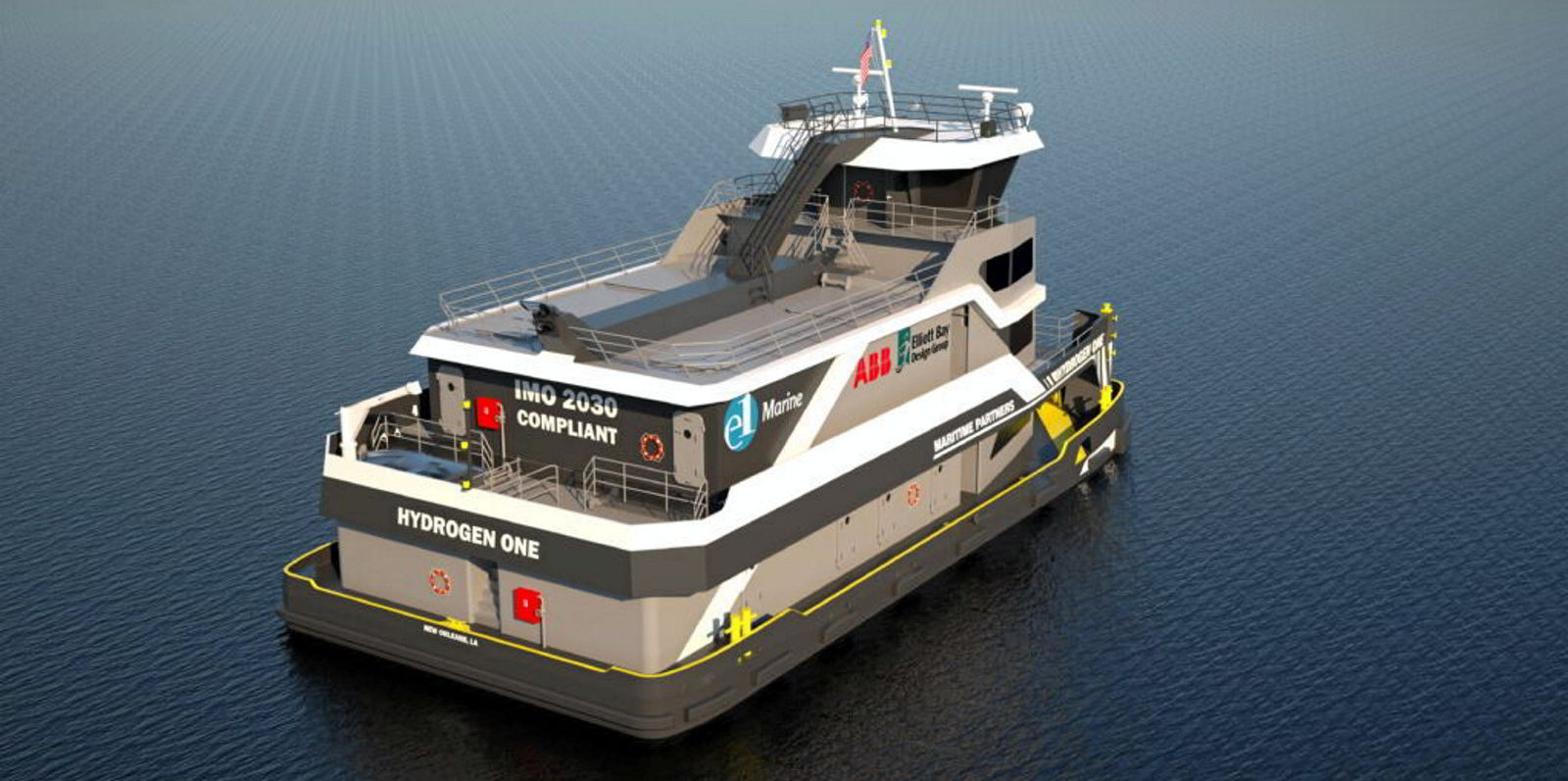
Vessel type: Tugboat
Owner: Maritime Partners
Naval architect: Elliott Bay Design Group
Length overall: 90 feet (27 metres)
Beam: 43 feet (13 metres)
Range: 550 miles (885 km)
Hydrogen-fuelled vessels face regulatory hurdles in the US and elsewhere, as rules for construction of the ships using the fuel have yet to catch up with the technology.
But the USCG has been here before, when it approved the first wave of LNG-fuelled vessels.
Sperry acknowledged the regulatory challenges ahead but expressed confidence that his team can guide the Hydrogen One through the process.
Sperry, who is also a board member at e1 Marine, said Maritime Partners aims to begin construction of the vessel this summer, with a goal toward the tug hitting the water next year.
He could not yet identify the yard where it will be constructed, noting that Maritime Partners' current newbuilding programme involves vessels at six shipyards. But he is clear about the US state that will be home to the project.
"We're Louisiana-based company. We've got a lot of roots here. We want to keep it here in the home state," Sperry said.
e1 Marine managing director Robert Schluter said the reformers use a feedstock that is made up of 62.5% methanol and 37.5% water by weight.
And while the process does result in CO2 emissions, the carbon footprint is low, because one-third of the hydrogen is produced from water. Plus, there is no nitrous oxide, sulphur oxides, particulate matter or soot, he said.
Ardmore executives have previously pointed out that if the e1 Marine systems are fed green methanol, such as fuel made from sustainable biomass, then it could cancel out the carbon emissions.
"It would be carbon negative if it's run on green methanol," chief executive Tony Gurnee said in a November conference call with analysts.
Sperry and Bick Brooks, who is chief executive, founded New Orleans-based Maritime Partners in 2017. The company acts as a lessor in the Jones Act tug-and-barge space, owning a fleet of 1,600 vessels.
That leasing model will continue with its new energy transition-focused project.
Sperry said that the company has already secured a customer for the vessel, an operator that plans to use the Hydrogen One on a dedicated route and that will work with developers to test the pioneering vessel.
In addition to that customer — whose identity is being kept under wraps — the unveiling of the design in early December generated additional attention for the ship from operators.
"There's no shortage of people interested in this asset," he said.
Sperry added that Maritime Partners envisions having a fleet of its methanol-to-hydrogen vessels in the future, and there could be possibilities for the technology beyond towboats, with a view toward using the technology on oceangoing tankers or bulkers.
"I think this is the very first inning of a very long game," he said.

